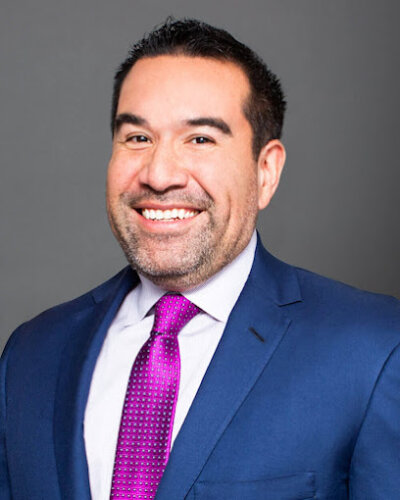Best White Collar Crime Lawyers in Arkansas
Share your needs with us, get contacted by law firms.
Free. Takes 2 min.
Or refine your search by selecting a city:
List of the best lawyers in Arkansas, United States
About White Collar Crime Law in Arkansas, United States
White collar crime refers to a broad range of nonviolent, financially motivated offenses that are typically committed by individuals, businesses, or government officials in positions of trust. In Arkansas, these crimes usually involve deception, fraud, or breach of trust for personal or business gain. Common examples include embezzlement, bribery, identity theft, tax evasion, securities fraud, and computer crimes. Prosecutions can occur in state courts, federal courts, or both, depending on the nature and extent of the alleged offense. White collar crime cases are often complex, involving detailed financial records and extensive investigations.
Why You May Need a Lawyer
If you are facing allegations or investigations related to white collar crime in Arkansas, legal representation is essential. Some common situations where people may require legal help include:
- Being contacted or investigated by state or federal authorities for financial irregularities
- Receiving a subpoena for documents or testimony related to business practices
- Facing charges such as fraud, embezzlement, money laundering, or forgery
- Discovering potential internal misconduct within a company or organization
- Having assets frozen or seized under suspicion of criminal financial activity
- Dealing with allegations of tax evasion or other financial crimes by the IRS or Arkansas Department of Finance and Administration
- Responding to whistleblower complaints or compliance reviews
An experienced attorney can help you understand your rights, manage interactions with investigative authorities, develop effective defense strategies, and work to protect your reputation and professional future.
Local Laws Overview
Arkansas state law defines and penalizes a wide range of white collar crimes. Some of the most relevant laws include:
- Fraud and False Statements: Arkansas Code Annotated Title 5 covers crimes involving deceit for financial gain, such as insurance fraud, securities fraud, and healthcare fraud.
- Embezzlement and Theft by Deception: Business professionals may be charged under theft statutes when accused of misappropriating funds or property entrusted to their care.
- Forgery and Counterfeiting: It is a crime to knowingly create, alter, or use false documents for fraudulent purposes.
- Bribery and Corruption: State law prohibits bribing public officials and includes penalties for both the giver and recipient of unlawful benefits.
- Computer and Cybercrimes: Unauthorized access to computer networks and electronic fraud are prosecuted under dedicated Arkansas statutes.
- Federal Law: Many white collar crimes also fall under federal jurisdiction. Federal charges often carry stiffer penalties and involve agencies such as the FBI, IRS, and SEC.
Penalties for white collar crimes in Arkansas vary depending on the amount of loss, the type of crime, the intent of the accused, and whether the crime was committed against vulnerable individuals or government agencies. Convictions can result in fines, restitution, probation, and imprisonment, as well as long-term professional consequences.
Frequently Asked Questions
What is considered a white collar crime in Arkansas?
White collar crimes include nonviolent, financial offenses such as fraud, embezzlement, bribery, forgery, identity theft, and tax evasion. These crimes often involve deception or a breach of trust.
Can white collar crimes be prosecuted both by the state and federal government?
Yes. Some cases fall under both Arkansas state and federal jurisdiction, resulting in parallel investigations or prosecutions. The choice depends on the specific facts and the relevant statutes.
What are the penalties for white collar crimes in Arkansas?
Penalties can include fines, restitution, imprisonment, probation, and loss of professional licenses. Severity depends on the amount of money involved, criminal intent, and whether there are prior convictions.
Should I speak to investigators if contacted about a white collar crime?
You should not speak to investigators without first consulting a lawyer. Anything you say can be used against you, and legal counsel will protect your rights and interests.
What is the statute of limitations for white collar crimes in Arkansas?
The statute of limitations varies depending on the nature of the charge but is typically three to six years. Some offenses, such as certain types of fraud or crimes involving minors, may have longer or no limitations.
Can I be charged if I did not know a crime was being committed?
Criminal charges usually require intent or knowledge. However, in some cases, negligence or willful ignorance may result in liability, especially in business or fiduciary roles.
What should I do if my business is accused of white collar crime?
Seek legal counsel promptly. Do not destroy documents or discuss allegations with employees or authorities without legal advice to avoid self-incrimination or worsening liability.
How do white collar crimes affect professional licenses?
Convictions can result in suspension or revocation of business, medical, legal, and other professional licenses, as well as affect future employment prospects.
What is the role of plea bargains in white collar crime cases?
Many white collar cases are resolved through plea agreements, where defendants may receive reduced charges or sentencing in exchange for cooperation or admission of guilt. Your lawyer will advise if this is a good option.
Can victims of white collar crime recover their losses?
Victims may receive restitution through the criminal justice process or file civil lawsuits to recover losses. However, recovery depends on the defendant's ability to pay and the facts of the case.
Additional Resources
If you need more information or support related to white collar crime in Arkansas, consider reaching out to:
- Arkansas Attorney General's Office - for consumer protection and fraud resources
- Arkansas Bar Association - for lawyer referral services
- Arkansas Securities Department - for securities fraud investigations
- Arkansas Department of Finance and Administration - for tax-related inquiries
- Federal Bureau of Investigation (FBI) - for federal white collar crime reports
- Internal Revenue Service (IRS) - for tax fraud cases
- Legal Aid of Arkansas - for those who may qualify for free or low-cost legal assistance
Next Steps
If you believe you are involved in a white collar crime case, take these important steps:
- Do not discuss your case with anyone except your lawyer
- Secure all documents and evidence related to the case
- Consult an experienced white collar crime attorney familiar with Arkansas law as soon as possible
- Follow your attorney's guidance on how to respond to investigators, subpoenas, or media inquiries
- Keep detailed records of all contacts and actions relating to the investigation
Obtaining experienced legal representation early can make a significant difference in the outcome of your case and help protect your rights, your reputation, and your future.
Lawzana helps you find the best lawyers and law firms in Arkansas through a curated and pre-screened list of qualified legal professionals. Our platform offers rankings and detailed profiles of attorneys and law firms, allowing you to compare based on practice areas, including White Collar Crime, experience, and client feedback.
Each profile includes a description of the firm's areas of practice, client reviews, team members and partners, year of establishment, spoken languages, office locations, contact information, social media presence, and any published articles or resources. Most firms on our platform speak English and are experienced in both local and international legal matters.
Get a quote from top-rated law firms in Arkansas, United States — quickly, securely, and without unnecessary hassle.
Disclaimer:
The information provided on this page is for general informational purposes only and does not constitute legal advice. While we strive to ensure the accuracy and relevance of the content, legal information may change over time, and interpretations of the law can vary. You should always consult with a qualified legal professional for advice specific to your situation.
We disclaim all liability for actions taken or not taken based on the content of this page. If you believe any information is incorrect or outdated, please contact us, and we will review and update it where appropriate.
Browse white collar crime law firms by city in Arkansas
Refine your search by selecting a city.













